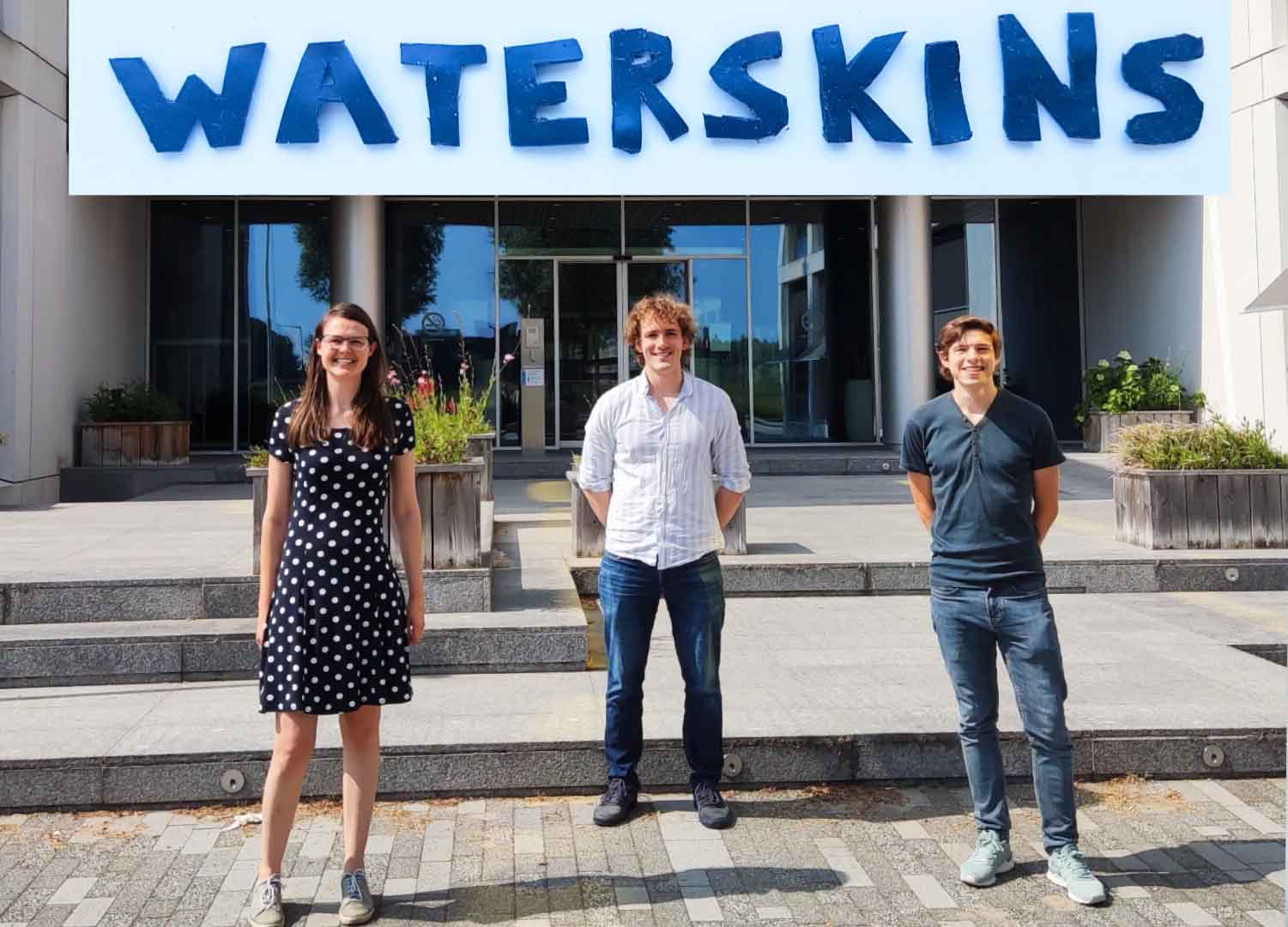At BISC-E, student teams are tasked with designing a new biobased product or process that contributes to reducing the use of fossil raw materials. The competition was originally set up by TKI-BBE. Thanks to support from the Bio-based Industries Consortium, it has grown into a major international competition. This year, 16 teams participated.
Clean water
With their production process for artificial leather, team WaterSkins want to contribute to sufficient clean water worldwide. First of all, by making the purification of waste water more profitable. Their process produces a leather-like material using the polymer kaumera. This makes it more financially interesting to purify wastewater. At the same time, WaterSkin can replace some of the heavily polluting production of leather products and thus also provide more clean water.
Runner-up was the Irish team PhytoTowel: purifying polluted surface waters by the circular cultivation of duckweed, one of the fastest growing plants in the world. Duckweed absorbs the pollutants and ensures that only clean water remains. By harvesting the protein-rich duckweed afterwards, it can be used as animal feed or fertiliser, for example.
The third prize goes to the Belgian team Loaf Foam. In Flanders alone, 44 million kilos of bread are thrown away annually, which means that almost 20 million kilos of starch are wasted. Loaf Foam makes sustainable, biodegradable and bio-based packing peanuts. It saves a lot of fossil raw materials and prevents environmental pollution.
The European BISC-E final event next year will take place in The Netherlands and will be organised by TKI-BBE.
For more information visit the BISC-E website. Pitches of the participating teams can also be found on the YouTube channel of the Bio-based Industries Consortium.
Image: Waterskins



